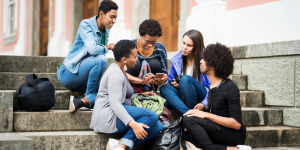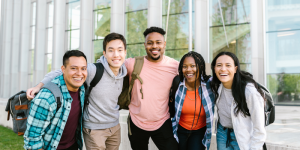Moving to a new country for education brings excitement, opportunity, and inevitable challenges. For international students arriving in Türkiye, cultural adaptation plays a vital role in creating a positive academic and personal experience. Building a life in a different cultural environment requires patience, openness, and a proactive attitude. Therefore, understanding Turkish culture and engaging in social activities can significantly ease the transition process. Additionally, cultural integration enriches not only the student’s academic success but also their personal growth, contributing to lifelong skills and global perspectives.

Tips for Quickly Adapting to Turkish Culture
Adapting to a new culture does not happen overnight. However, certain strategies can accelerate the process and make the experience more enjoyable. First, being open-minded and avoiding judgment based on first impressions is crucial. Another key point is observing and respecting local customs, traditions, and social norms.
For example, learning basic Turkish phrases, such as greetings and polite expressions, helps establish immediate connections with locals. Although English is commonly spoken in universities and tourist areas, making an effort to speak Turkish is appreciated and can open many doors socially. Additionally, showing interest in Turkish cuisine, music, and festivals provides natural opportunities to interact with the local community.
Another useful tip is to be curious and ask questions. Most people are happy to share their culture and traditions when they notice genuine interest. Furthermore, participating in national holidays and community events allows students to experience Turkish culture firsthand. This immersion not only facilitates language acquisition but also helps in building meaningful relationships.
Joining student-led activities such as sports tournaments, cultural nights, or volunteering projects is another excellent way to socialize and practice the language. Keeping an open mind and being proactive in approaching classmates and roommates can greatly enhance the adaptation process. This way, students can turn initial feelings of isolation into a fulfilling and enriching journey.
In addition to participating in organized activities, exploring local neighborhoods, trying different cafes, and attending art exhibitions or concerts further immerses students into the everyday life of Türkiye. Engaging in these experiences builds a deeper emotional connection to the host country and transforms the adaptation journey into an adventure rather than a struggle.

International Student Clubs and Social Events
Universities in Türkiye place great emphasis on creating inclusive environments for international students. Many institutions offer a variety of clubs and organizations that specifically cater to the needs and interests of foreign students. These clubs organize events that range from welcome parties to intercultural festivals, allowing students to meet peers from diverse backgrounds.
For instance, International Student Associations often host orientation programs, city tours, and cultural exchange evenings. Joining such groups offers newcomers a structured way to integrate into the university community. Moreover, participating in student clubs focusing on arts, sports, technology, or volunteering helps build networks beyond the classroom.
Another valuable opportunity is attending social events organized by city municipalities or non-governmental organizations. Many cities offer “international nights,” food festivals, language exchange meetups, and public workshops. Attending these activities is not only entertaining but also educational. It provides students with deeper insights into daily life and local dynamics in Türkiye.
Moreover, universities often organize seminars and workshops specifically designed to support international students’ cultural adjustment. These programs typically cover practical topics like navigating healthcare systems, understanding academic expectations, and managing cross-cultural communication.
Participating in charity events, joining environmental movements, or volunteering in social responsibility projects are additional ways to build bonds with local communities. These activities not only provide an opportunity to make new friends but also allow students to contribute positively to their host society, reinforcing a sense of belonging.
Embracing Differences: Coping with Culture Shock
Experiencing culture shock is a natural part of the adaptation journey. Initially, students may feel overwhelmed by unfamiliar customs, different communication styles, or homesickness. Recognizing that these feelings are normal is the first step toward coping effectively.
One effective approach is to maintain regular contact with family and friends from home while actively participating in local life. Another important tactic is setting realistic expectations. It is unrealistic to expect oneself to adapt immediately and flawlessly. By giving oneself permission to struggle and learn gradually, the pressure to “fit in” diminishes.
For example, practicing mindfulness and keeping a journal to document daily experiences can help process emotions constructively. Talking to fellow international students who are undergoing similar experiences can also be incredibly reassuring. Furthermore, seeking support services offered by universities, such as counseling centers, provides professional guidance during challenging times.
It is essential to celebrate small victories, such as successfully navigating public transportation, ordering food in Turkish, or making new friends. These achievements, though seemingly minor, signify significant steps toward cultural integration. Another helpful strategy is maintaining hobbies and interests from home, as they provide a sense of continuity and comfort in a new environment.
Importantly, embracing cultural differences rather than resisting them can turn adaptation into a rewarding and transformative experience. Trying new foods, participating in local traditions, and exploring different viewpoints enrich personal growth and broaden perspectives.
Students should also remember that cultural adaptation is a two-way process. While international students learn from their host culture, they also share their own backgrounds, enriching the cultural diversity of their universities and communities. Building mutual understanding and respect strengthens global friendships and promotes intercultural competence, an increasingly valuable skill in today’s interconnected world.
In conclusion, adapting to Turkish culture and building a fulfilling social life as an international student requires patience, active participation, and a positive mindset. Therefore, embracing cultural differences, joining social activities, and maintaining openness to new experiences are essential elements for a successful transition. Because students who invest time and energy into understanding and connecting with their host community ultimately create richer, more memorable educational journeys that benefit both their academic success and their personal development.
Focus Keyword:
cultural adaptation for international students in Türkiye
Meta Description:
Discover essential strategies for cultural adaptation and building a vibrant social life in Türkiye. From joining student clubs to coping with culture shock, learn how international students can thrive academically and personally through meaningful cultural engagement.

